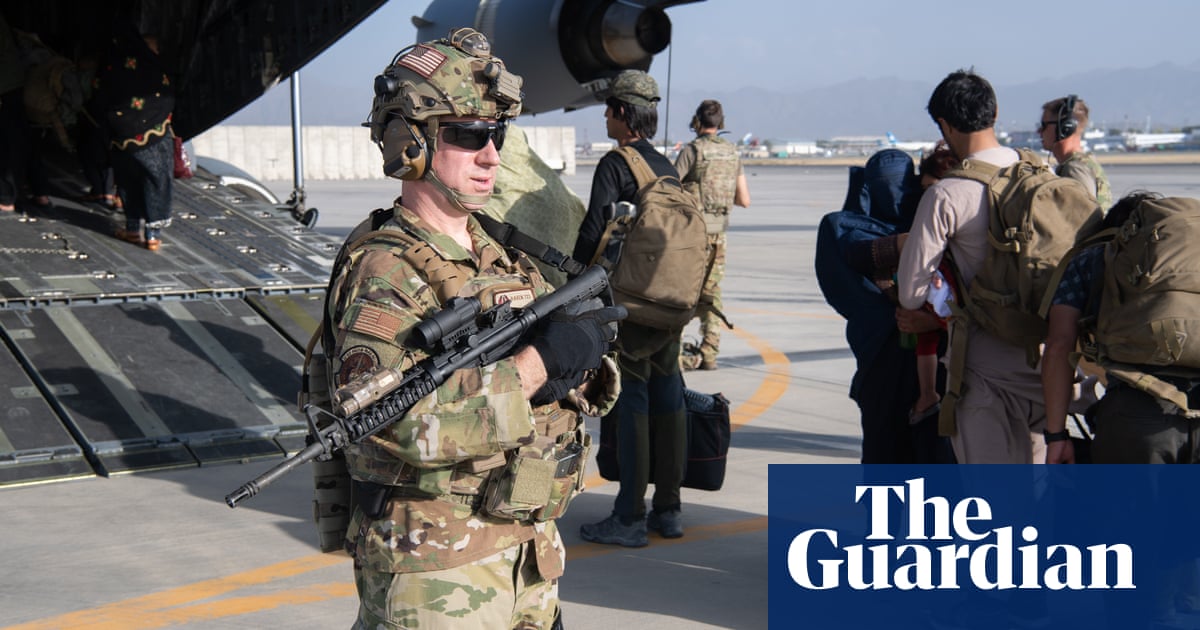
In common with the US and other NATO partners, the UK is this week examining its role in Afghanistan as troops leave and a new phase of our engagement with that country begins.
It is quite a harsh spotlight. The media has much sympathy for our forces who were engaged there, for those who have returned with life-changing injuries, and for families who have lost loved ones, as in any conflict. The harder questions are for policymakers. What has been achieved? Why are we leaving now? And, above all, what is going to happen next, not least to those in Afghanistan whose lives have been altered by our engagement and who must face a future that our very involvement has dictated?
As minister for South Asia between 2010 and 2012, I made visits to Afghanistan. My notes remind me of the cautious optimism of those times. It was not all about the military. I traveled to the agricultural college in Helmand and the university in Mazar-e Sharif, and I met the Afghan Olympic Committee, speaking to those building their country in the midst of conflict. I saw the work of the UK, training those who were to take on the responsibilities of civil law enforcement, requiring immense personal bravery to do so. In particular, I recall meeting, and being inspired by, the women who were creating a new future for themselves — those training in the civilian police, working for nongovernmental organizations on a variety of projects to advance women’s rights, and female parliamentarians who knew there could be no lasting peace or stable future for the country unless women fulfilled widespread roles in society, and unless they themselves braved hostility and threats to lead such efforts.
My briefing was clear that the one thing I needed to reiterate constantly was the UK’s “long-term” commitment to Afghanistan and its people. There was an unspoken awareness that, somehow, someday, we were going to leave; that the international community would abandon Afghanistan following the drawdown of international troops. It had happened before in the country’s recent history, and the consequences of leaving were as significant as the consequences of the intervention in the first place.
We have reached that point in the test. The hope always was that the work that was being done on building institutions and encouraging the development of a stronger, more inclusive government based on Afghan needs, not the principles of the West, would take root and ensure that the internal peace talks to come would give those who wanted such a future for Afghanistan sufficient weight to overcome those who did not. It was also hoped that a trained, equipped and dedicated army and civilian police force would be strong enough to resist those with the intention of stopping the development of such a state in its tracks.
I fear that is not where we are. The US “peace agreement” with the Taliban looks thin and increasingly one-sided as the Taliban takes territory and women disappear from the streets. Switching the lights out, as US forces left Bagram Air Base last week, making it easier for looters, suggests a painful symbolism of what is to come.
Switching the lights out, as US forces left Bagram Air Base last week, suggests a painful symbolism of what is to come.
Alistair Burt
The UK has rightly made provision for those who actively assisted our forces in their efforts to bring and safeguard peace, such as interpreters, to be removed and given new lives abroad. So they should. But what about others? What about those whose work in building their Afghanistan was predicated on the belief that they would have sufficient external support for long enough to enable them to succeed? They have also placed their futures in our hands through their dedication to values that they shared with us and in the “long-term commitment” people like me made speeches about. What is to happen to them?
It is not that I do not understand the political and practical difficulty of “never-ending” conflict. I visited enough of our forces to appreciate the extraordinary work they do; how they have stopped the threat of terrorist attackers using Afghanistan as an ungoverned space in which to base themselves. And I share the sense that, as in any operation, there has to be a time to go home. I feel for those who now must make difficult political decisions, and there is always a ready ear for any cry of “bring the troops home.”
But as the troops leave, have nations ensured that the long-term commitment outside of our forces will remain, and that the continuing promises of development support can be realistically delivered? Are we going to be able to meet the gaze of women in Afghanistan in five years’ time?
I do not agree that the time is right. American Gen. David Petraeus’ key consideration “tell me how this ends” is usually quoted as a warning before military action. It is just as pertinent, and requiring of an answer, before engagement is concluded.
Alistair Burt is a former UK MP who has twice held ministerial positions in the Foreign and Commonwealth Office — as parliamentary undersecretary of state from 2010 to 2013, and as minister of state for the Middle East from 2017 to 2019. Twitter: @AlistairBurtUK
Disclaimer: Views expressed by writers in this section are their own and do not necessarily reflect Arab News" point-of-view












